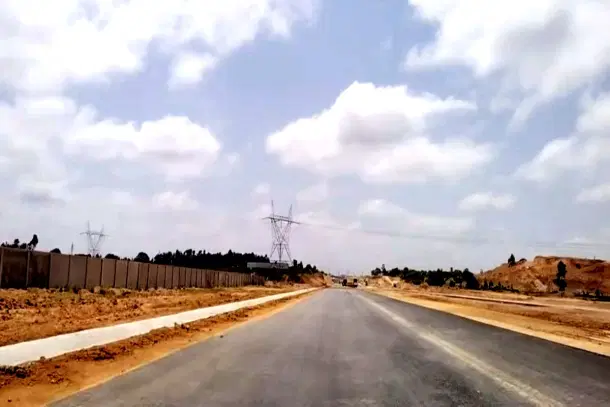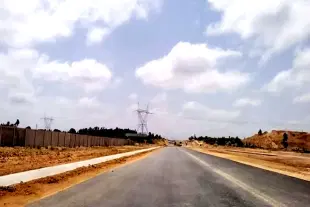News Brief
Relocation Of Power Towers Further Delays Bengaluru–Chennai Expressway Completion
Arjun Brij
Sep 16, 2025, 05:55 PM | Updated 05:55 PM IST
Save & read from anywhere!
Bookmark stories for easy access on any device or the Swarajya app.


The completion of the 106 km Tamil Nadu stretch of the Bengaluru–Chennai Expressway has hit another roadblock, with delays caused by the relocation of high-voltage power towers and transmission lines in the Arakkonam–Kancheepuram corridor, according to one New Indian Express report.
Officials said nearly 4.5 km of the 25.5 km section is obstructed by 400 kV transmission towers linked to multiple substations across Kancheepuram and Ranipet districts, managed by Tamil Nadu Transmission Corporation (TANTRANSCO).
“Unlike regular land acquisition, relocating power towers involves securing new land parcels, realigning transmission routes, and addressing several technical challenges. Of the 102 towers, about 80 have already been shifted, and arrangements are in place to relocate the remaining 22,” an official was quoted as saying.
The process, however, has been marred by disputes. “When the district administration identifies alternative sites for relocating the electric towers, a few landowners challenge the acquisition in court. These legal disputes further delay the process,” another official was quoted as saying.
The Rs 17,000 crore expressway, spanning 262 km from Hoskote in Karnataka to Sriperumbudur in Tamil Nadu, was initially scheduled for completion in 2024 but has faced repeated extensions, with June 2026 now set as the target.
Once operational, the four-lane access-controlled highway, designed for speeds of 120 kmph and expandable to eight lanes, is expected to cut travel time between Bengaluru and Chennai to three hours, halving the current journey.
Progress varies across states. The 71 km Hoskote–Bethamangala stretch in Karnataka opened last December, while in Andhra Pradesh, 68 km of the 85-km section is complete despite challenging terrain.
In Tamil Nadu, 80 km of the 106 km route is finished, with completion rates standing at 95 per cent for Gudipala–Arakkonam, 50 per cent for Arakkonam–Kancheepuram, and 70 per cent for Kancheepuram–Sriperumbudur.
Please click here to add Swarajya as your preferred and trusted news source on Google
Arjun Brij is an Editorial Associate at Swarajya. He tweets at @arjun_brij





